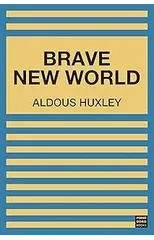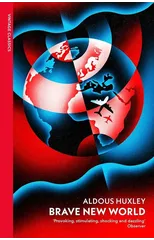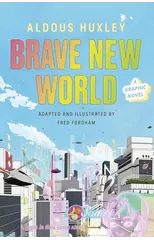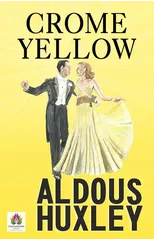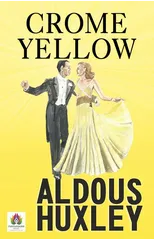On the Margin: Notes and Essays (1923) is a collection of essays by English author Aldous Huxley. Originally published in various journals and periodicals, including The Athenaeum, The London Mercury, and Vanity Fair, these short essays display the wide-ranging intellectual interests of a young writer at the beginning of his career. In "On Re-Reading Candide," Huxley, while in the process of moving into a new home, chances upon a cherished, leather-bound first edition of Voltaire's classic satire Candide. Reflecting on its resonance for a world not far removed from the horrors of the First World War and already descending into fascism and sectarian conflict, Huxley develops his meditation into a compelling argument for the power of literature to not only comment on global affairs, but to change them. "Subject-Matter of Poetry" sheds light on the historically narrow vision of poets despite the range afforded by the art form. Exposing the efforts of critics to draw a line between ancient and modern poets and their subjects, Huxley suggests that to merely write about modern life does not make poetry innovative. He argues instead that "[t]he twentieth century still awaits its Lucretius, awaits its own philosophical Dante," that the poet whose art will reflect not only modern subjects, but the evolving nature of modern subjectivity, has not yet appeared. On the Margin: Notes and Essays compiles twenty-seven short essays on topics ranging from Tibetan taxation to the poetry of Edward Thomas. With a beautifully designed cover and professionally typeset manuscript, this edition of Aldous Huxley's On the Margin: Notes and Essays is a classic of English literature reimagined for modern readers.
Aldous Huxley
Aldous Huxley was a British writer and philosopher known for his dystopian novel "Brave New World," published in 1932. His works often explored themes of technology, society, and the human condition. Huxley's writing style was characterized by his use of satire and wit, as well as his keen observations of society. He was a prominent figure in the literary genre of dystopian fiction, influencing writers such as George Orwell and Margaret Atwood. In addition to "Brave New World," Huxley's other notable works include "Point Counter Point" and "The Doors of Perception." His contributions to literature continue to be celebrated for their thought-provoking commentary on the complexities of human existence.

